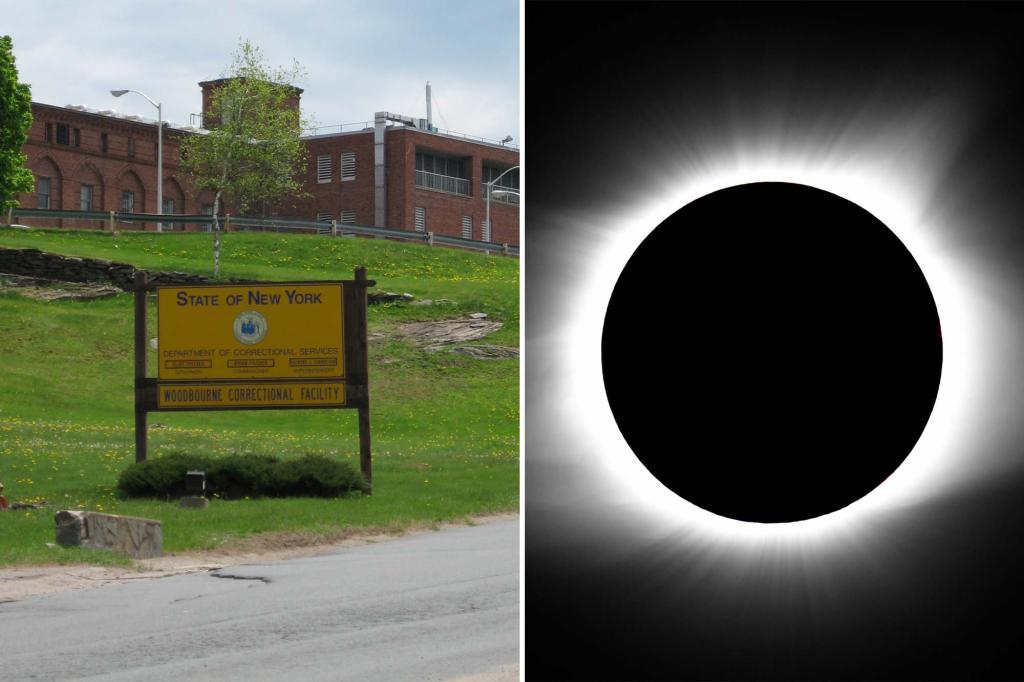Six inmates at Woodbourne Correctional Facility in upstate New York, who filed a lawsuit citing “religious beliefs” to view the solar eclipse, have reached a settlement that allows them to witness the event from the prison’s yard with proper glasses provided by the prison system. The inmates, who adhere to various faiths including Baptist, Muslim, Seventh-Day Adventist, and Santeria, as well as one atheist, will get to experience the celestial phenomenon in accordance with their religious beliefs. However, the fate of other inmates across the state remains uncertain, as outdoor activities will be restricted during the eclipse period for thousands of inmates who do not have a religious reason to view the event.
The settlement came after the inmates filed a lawsuit with the help of the law firm Alston & Bird, arguing that they have a constitutional right to see the eclipse, claiming it as a religious event they must witness to observe their faiths. The inmates were ecstatic upon hearing the news that they would be allowed to view the eclipse and were pleased with the outcome of the settlement. They argued that the eclipse is significant to their religious beliefs, as depicted in the Bible during Jesus’ crucifixion and in Islamic books of worship during the death of the Prophet Muhammad’s son.
The solar eclipse is set to take place on April 8, blocking the sun for over 180 million people in its path, stretching across North America, including 15 US states and reaching Newfoundland, Canada. New Yorkers will witness the eclipse just after 2 p.m. Experts anticipate a coronal mass ejection, which occurs when particles from the sun are hurled out into space. To view the eclipse safely, proper eyewear such as eclipse glasses or a handheld solar viewer is recommended to avoid eye injuries. The next total solar eclipse is scheduled for August 12, 2026, visible to viewers in Greenland, Iceland, Spain, Russia, and a small portion of Portugal.
Even the atheist plaintiff in the lawsuit, Jeremy Zielinski, emphasized the importance of celebrating common humanity and bringing people together to find common ground, which he believed is central to atheism. Originally granted approval to view the eclipse, Zielinski and other inmates faced disappointment as officials announced a lockdown of state prisons during the astronomical event. The State Department of Corrections and Community Supervision spokesperson stated that they had been analyzing requests to view the eclipse before the lawsuit was filed and that the resolution of the suit was appropriate.
Woodbourne Correctional Facility, located in Sullivan County, is not near the zone of totality for the eclipse, but many maximum and medium-security prisons in New York are located within it, including Attica and Clinton Correctional Facility. These prisons house inmates who may have been affected by the lockdown during the eclipse. The next full solar eclipse is not expected to happen until 2044, making the upcoming eclipse a rare and significant event for those able to witness it.


